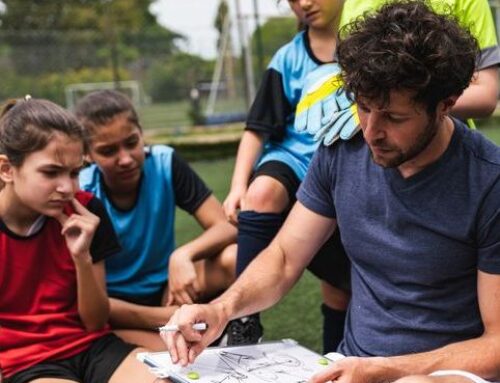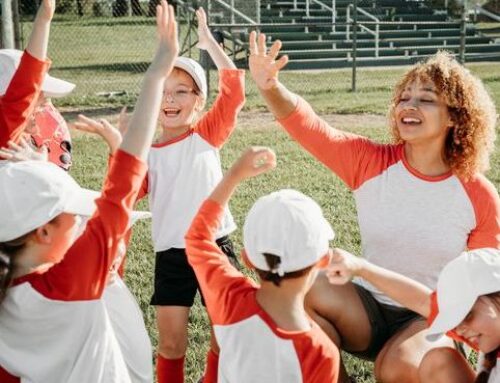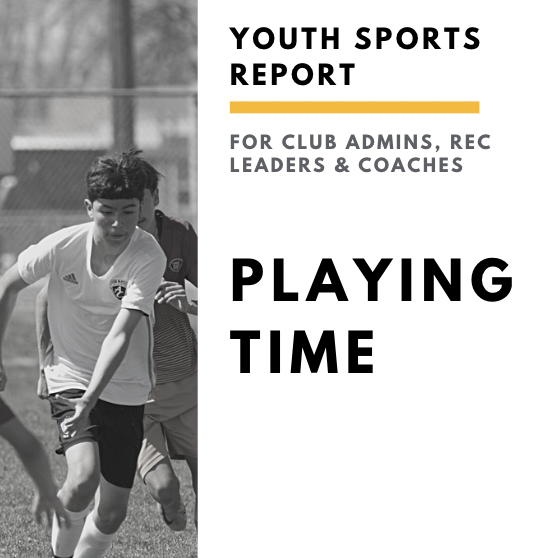Get our exclusive report. Download the iSport360 Club Switching Report Here – For Club Admins, Rec Leaders and Coaches.
Why Athletes Make Great Employees
While less than .1% of high school athletes go on to play professionally, sports often still play a meaningful role in the professional lives of the other 99.9%.
As a Business Development Director, I’m often tasked with organizing teams and delegating tasks to get projects done as efficiently and effectively as possible. As any person who has ever managed others or runs their own business knows, businesses are usually successful when they have good people. That’s why companies spend so much time, energy, and resources on hiring, employee engagement, and retention. People are the key success, and I’ve found that a significant number of the successful people I’ve worked for, worked alongside, and managed were athletes for some portion of their lives.

It makes sense to me. Reformed Sports talks a lot about the value of the lessons and skills learned through sports, and an important way that value becomes tangible is in the professional world. I love to hire, work with, and work for athletes.
Throughout the sport experience, whether that’s youth, high school, college, or beyond, sports enable their participants to constantly be honing several critical life skills: being a team player, confidence, communication, and discipline (to name a few). While these are often skills and experiences we’re introduced to at a young age, I think we can all probably name a few adults we know that lack some of the qualities that I just listed. I’d go farther to say that sports often force athletes to learn these skills because there’s little chance to be successful on the field or the court if they don’t have self-belief, can’t work as a part of a team, or don’t put in the work when nobody is watching. While sports certainly aren’t the only opportunity to learn these skills, I’d argue that they, without a doubt, help their participants function better in the workforce.
Sports can also be a powerful outlet for kids who struggle with school. Sports, of course, are not a catchall for any and all issues in the classroom, but in my experience, sports gave me more confidence, stronger relationships, and a better understanding of the passionate pursuit of a goal than school ever did. (Note: I wholeheartedly recognize the importance of school. My kids are student athletes and student will always come first.) I use that self-belief, those relationship-building skills, and that work ethic everyday in my career. These are all qualities that are integral to being successful in professional life, regardless of the type of work.
As kids get older, continuing to play sports provides other benefits that translate to the work world:
Preparation – This includes the simple organizational necessities like remembering to pack both a white and black jersey or leaving early enough to factor in buffer time before the game as well as developing the understanding of how true preparation (mental, physical, emotional, and/or directional) for any big moment can start days, weeks, months, or even years in advance. As a Business Development Director, I need to know that my team is going to show up on time and prepared, regardless of the circumstances.
Time management – This probably needs little explanation. As a multi-sport athlete in high school, I quickly learned the importance of time management. Playing multiple sports enabled me the hands-on opportunity to learn how to prioritize what was important because I could never do everything each day that all of my different sport coaches wanted. I had to prioritize the sport that was in-season and when I had extra time, I could practice the others. When I went to college, although I only played one sport, the time demands intensified for both baseball and school. Managing classes, homework and tests, an on-campus job, and a demanding year-round baseball commitment was unlike anything I’d previously experienced. It absolutely prepared me for a full-time job (not to mention my six kids!).
Relationships – As you’ve likely heard on The Reformed Sports Project Podcast, I’ve built strong relationships with many of my teammates and coaches over the years of playing sports. Not only did this help me foster the ability to make and maintain good relationships with people I care about, it also forced me learn how to build working relationships with people with whom I didn’t see eye-to-eye. It’s not realistic to think all colleagues will get along, and sports are a great test run for overcoming differences and working with others to achieve a larger goal. I know it’s more than likely that an athlete I’m considering hiring has overcome some of these obstacles in the past. Another crucial aspect of relationships is building a network. My network from my playing days has helped me get iconic guests on the podcast such as Roy Williams and Dabo Swinney. Having a network of people who have gone to bat for me in the professional world has been critical to my success.
Self-advocacy – When an athlete wants to get more playing time, is hoping to be considered for the captaincy, or whatever the scenario may be in which they feel the need to speak up, they must learn to advocate for themselves. Experience is the best teacher in understanding the art of appropriately advocating for oneself versus being a shameless self-promoter. I want to work with others who are confident in speaking up when needed but also understand the ethos of “we before me.”
Since the overwhelming majority of people who play sports will go ‘pro’ in something else, it’s crucial for parents, coaches, and athletes to remember that the skills learned in sports will impact players’ future careers, whether or not they become professional athletes.
-Nick Buonocore
Parent, Volunteer Coach, &
Founder of The Reformed Sports Project
December 23, 2022|College Athletics, Development
iSport360 is proud of to work with Nick and call him a friend. Thank you for the post!
Learn more or request a demo of our youth sports software that is helping teams improve communication, organization and player development.
January 18, 2023





